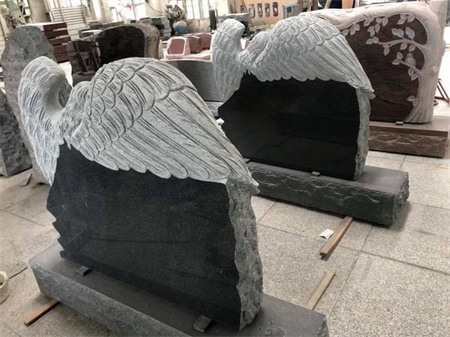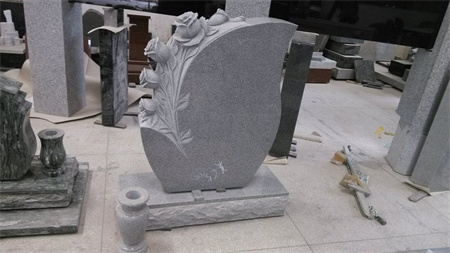Why Granite Memorials Are Common in War Cemeteries

Why Granite Memorials Are Common in War Cemeteries
War cemeteries stand as solemn reminders of the sacrifices made by soldiers in the defense of freedom. Amidst the rows of headstones, one material consistently dominates—granite. This strong, enduring stone is not just a choice of convenience; it carries deep symbolism and practical reasons that make it the material of choice for memorials, particularly in the context of war cemeteries.

For centuries, granite has been a favored material in monuments due to its strength. Unlike softer stones that erode and degrade over time, granite can resist the elements, enduring centuries of weathering without losing its shape or inscription. In the often harsh climates of war cemeteries, where wind, rain, and snow are constant companions, granite ensures that the names of fallen soldiers remain legible and intact for generations to come. The enduring nature of granite ensures that the memorials stand tall and firm, just as the soldiers did in life, making it a fitting tribute to their memory.
The symbolic power of granite extends beyond its physical attributes. It has a timeless quality that makes it a fitting material for commemorating the lives of those who have passed, especially in war. Unlike marble, which might be associated with softer, more traditional monuments, granite carries with it a sense of permanence and grit. Its often rugged appearance can evoke feelings of strength and endurance, perfectly mirroring the struggles and sacrifices of the soldiers who gave their lives. War memorials are not just about remembering the dead; they are about honoring the virtues of courage, sacrifice, and fortitude. Granite, with its solemnity and resilience, encapsulates these values perfectly.

Granite is also a stone with deep historical significance. From ancient Egyptian tombs to modern-day memorials, granite has been used for millennia to honor the dead. Its use in war cemeteries connects contemporary soldiers to their ancestors, reinforcing the timeless nature of sacrifice. It is a way of acknowledging that, while the specific wars may change, the fundamental human experience of loss and remembrance remains constant. By choosing granite, the designers of war memorials link the past and present, creating a lasting connection between generations.
Moreover, granite is a material that holds up to both time and scrutiny. War memorials are not merely personal tributes; they are public symbols that stand for collective memory. In the case of war cemeteries, these memorials are designed to be places of reflection, not just for the families of the fallen, but for entire nations. Granite’s durability ensures that the memorials can withstand the wear and tear of public attention—whether from visitors, changing weather conditions, or the passing of decades.
In many ways, granite memorials serve as a physical representation of the soldiers’ sacrifice. The gravestones themselves are more than markers of death; they are symbols of lives that were lived with purpose, of courage in the face of overwhelming odds, and of the deep bond between soldiers and the societies they defended. Just as granite is shaped by natural forces into something enduring and strong, so too did these soldiers shape the course of history with their sacrifice. The stone, enduring and resolute, mirrors the spirit of the fallen and provides a timeless tribute to their legacy.
In the end, the choice of granite for war memorials is no accident. It is a deliberate decision, rooted in both the physical and symbolic qualities of the stone. Granite’s durability ensures that the memories of the fallen will not fade, while its strength embodies the resilience of those who made the ultimate sacrifice. In a world where many things come and go, granite stands as a reminder that some things—like the debt of honor owed to those who gave their lives for others—are eternal.